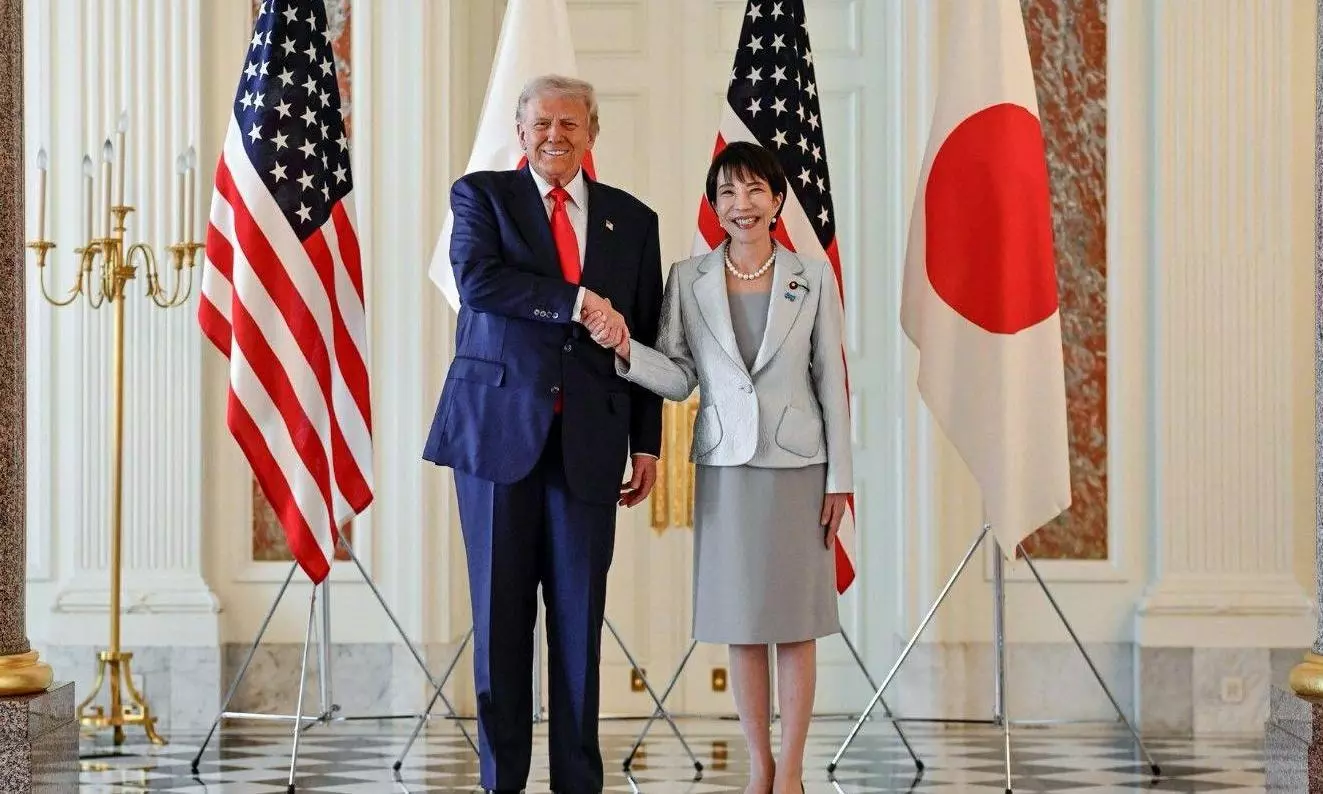
Amid China logjam, Trump signs rare earths deal with Japan’s Takaichi
Framework agreement focuses on accelerating diversified rare earth supply chains, coordinated investment, and mutual stockpiling in the Indo-Pacific

US President Donald Trump and Japan’s new Prime Minister Sanae Takaichi on Tuesday (October 28) signed a framework agreement to secure the supply of critical minerals and rare earths through enhanced mining and processing cooperation, the White House said in a statement.
US-Japan rare earth deal
The agreement was signed during Trump’s visit to Japan, part of his wider tour of Asia, as both nations seek to strengthen their rare earth supply chains, which are vital for various industries from renewable energy to electronics and automobiles.
Also Read: Why a trade deal is not likely to solve all vexing US-China issues
According to the White House, the US and Japan will collaborate through the use of economic policy tools and coordinated investment to accelerate the development of diversified, liquid, and fair markets for critical minerals and rare earths.
As part of the deal, both sides agreed to streamline and deregulate permitting timelines and processes for critical minerals and rare earths, while also addressing non-market policies and unfair trade practices.
The two countries also plan to consider a mutually complementary stockpiling arrangement and to work with other international partners to bolster supply chain security, the statement added.
Trump widens Indo-Pacific partnerships
The agreement reflects Washington’s growing effort to reduce dependence on China for vital materials that power technologies ranging from electric vehicles to fighter jets.
The White House said the framework aims to ensure the "resilience and security of critical minerals and rare earths supply chains."
The pact follows a series of similar memoranda of understanding signed by Trump in recent days with Malaysia and Thailand, marking a coordinated push to diversify rare earth sources across the Indo-Pacific region.
Also Read: Trump attends Thailand-Cambodia ceasefire ceremony during Malaysia visit
During his visit to Kuala Lumpur earlier this week, Trump signed agreements with Malaysia and Thailand to boost production and exports of critical minerals, following a USD 8.5 billion US-Australia framework deal.
"In about a year from now, we’ll have so much critical mineral and rare earths, and you won’t know what to do with them," Trump said confidently on Monday (October 27).
Beijing tightens export restrictions
Currently, China controls around 70 per cent of global mining and nearly 90 per cent of refining capacity for rare earth elements, which are essential for advanced technologies including smartphones, electric vehicles, and military aircraft.
By contrast, the United States has only one operational rare earth mine and is racing to secure key minerals vital for electric vehicles, defence systems, and high-end manufacturing.
Also Read: Rare earths: Deng Xiaoping's vision, China’s advantage, and India’s race against time
Beijing recently expanded its export controls, adding new materials to its restricted list, tightening oversight of foreign companies reliant on Chinese materials, and requiring government approval for products containing even trace quantities of rare earths.
The move was described by US Treasury Secretary Scott Bessent as "China pointing a bazooka at the world’s supply chains" and has reignited tensions between the two economic powers.
Trump’s counter-strategy has focused on building alliances to dilute Beijing’s dominance. The Japan deal comes just days before his expected meeting with Chinese President Xi Jinping in South Korea, where trade and rare earths are expected to feature prominently in discussions.

